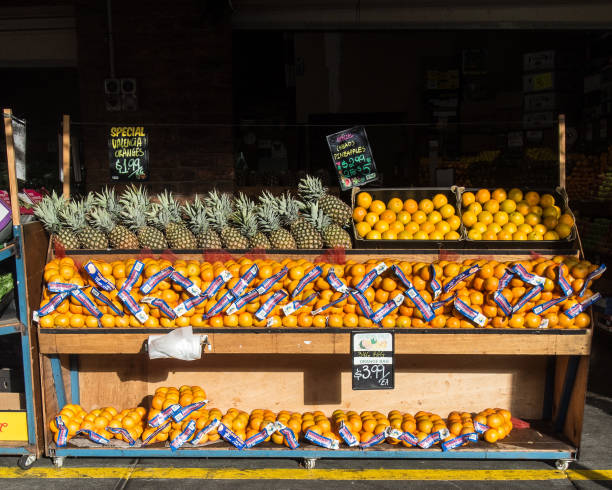Melbourne, known for its vibrant food scene and diverse culinary offerings, boasts an array of seasonal vegetables that cater to various tastes and preferences. Understanding what vegetables are in season not only ensures freshness but also supports local agriculture and promotes sustainable eating habits.
Why Seasonal Vegetables Matter
Consuming seasonal vegetables offers numerous advantages, including superior taste, increased nutritional value, and reduced environmental impact. By aligning our diet with the seasons, we embrace the natural rhythms of agriculture and reap the benefits of locally sourced produce.
Spring Vegetables
Freshness and Flavor
Spring heralds the arrival of tender greens such as asparagus, spinach, and peas. These vibrant vegetables burst with flavor and vitality, making them ideal additions to salads, stir-fries, and pasta dishes.
Nutritional Benefits
Rich in vitamins, minerals, and antioxidants, spring vegetables contribute to overall health and well-being. Incorporating them into your diet enhances nutrient intake and supports immune function during the transitional period from winter to summer.
Summer Vegetables
Abundance and Diversity
Summer brings an abundance of colorful vegetables, including tomatoes, zucchini, and bell peppers. These versatile ingredients feature prominently in refreshing salads, grilled skewers, and light soups, showcasing the season’s bounty.
Cooking Tips and Recipes
Explore the versatility of summer vegetables by experimenting with marinades, dressings, and grilling techniques. From ratatouille to gazpacho, the possibilities are endless, allowing you to savor the essence of summer in every bite.
Autumn Vegetables
Richness and Warmth
As temperatures cool, autumn heralds the arrival of hearty vegetables such as pumpkin, sweet potatoes, and Brussels sprouts. Their robust flavors and earthy profiles lend themselves well to comforting soups, stews, and roasts, offering warmth and sustenance during the cooler months.
Culinary Uses
Embrace the autumn harvest by incorporating seasonal vegetables into pies, gratins, and casseroles. Their versatility extends to both sweet and savory dishes, adding depth and complexity to your culinary creations.
Winter Vegetables
Hearty and Satisfying
Winter vegetables, including carrots, cauliflower, and kale, provide nourishment and comfort during the coldest months of the year. Their hearty textures and rich flavors form the foundation of hearty soups, creamy gratins, and robust braises, imparting warmth and satisfaction with every bite.
Winter Recipes
Indulge in the rustic charm of winter vegetables with hearty recipes such as root vegetable stew, cauliflower gratin, and kale and white bean soup. These soul-warming dishes celebrate the season’s bounty and bring comfort to chilly evenings.
Local Farmers’ Markets
Supporting Local Agriculture
Explore Melbourne’s vibrant farmers’ markets to discover an array of seasonal produce sourced directly from local growers. From heirloom tomatoes to artisanal cheeses, these markets offer a sensory feast that celebrates the region’s agricultural diversity.
Finding Seasonal Produce
Engage with farmers and producers to learn about seasonal offerings and cultivation practices. By forging connections with the community, you gain insight into the provenance of your food and support sustainable agricultural practices.
Community Supported Agriculture (CSA) Programs
Benefits and Accessibility
Joining a Community Supported Agriculture (CSA) program provides direct access to seasonal produce while fostering relationships with local farmers. Through weekly or bi-weekly deliveries, subscribers enjoy a curated selection of fresh, seasonal vegetables sourced from nearby farms.
Subscription Information
Explore various CSA programs in Melbourne to find one that aligns with your preferences and dietary needs. From organic farms to urban cooperatives, these initiatives offer flexible subscription options and convenient pickup locations, making seasonal eating accessible to all.
Grocery Store Options
Identifying Seasonal Produce
Navigate the aisles of your local grocery store with a keen eye for seasonal offerings. Look for signage, labels, and displays highlighting fresh produce sourced from local farms and growers.
Tips for Selection
Choose seasonal vegetables that are firm, vibrant, and free from blemishes or bruises. Opt for locally grown varieties whenever possible, as they are harvested at peak ripeness and offer superior flavor and nutritional content.
Environmental Impact of Seasonal Eating
Reducing Carbon Footprint
By consuming seasonal vegetables sourced from local farms, you minimize the environmental impact associated with long-distance transportation and refrigeration. Embracing seasonal eating reduces carbon emissions and promotes eco-friendly food systems.
Minimizing Food Miles
Supporting local agriculture reduces the distance food travels from farm to table, minimizing fuel consumption and transportation-related emissions. By prioritizing locally sourced produce, you support regional economies and strengthen community resilience.
Health Benefits of Seasonal Eating
Nutritional Content
Seasonal vegetables are harvested at peak ripeness, ensuring optimal flavor, texture, and nutritional content. From vitamin-rich leafy greens to antioxidant-packed berries, these fresh offerings provide essential nutrients that support overall health and vitality.
Vitamin and Mineral Richness
Incorporating a variety of seasonal vegetables into your diet ensures a diverse array of vitamins, minerals, and phytonutrients. From vitamin C in citrus fruits to beta-carotene in winter squash, seasonal eating offers a holistic approach to nutritional wellness.
Tips for Incorporating Seasonal Vegetables into Your Diet
Meal Planning Strategies
Plan meals around seasonal produce to capitalize on freshness and flavor. Experiment with new recipes and culinary techniques that showcase the unique characteristics of each vegetable, from roasting and grilling to pickling and fermenting.
Creative Cooking Techniques
Explore the versatility of seasonal vegetables by incorporating them into salads, soups, stir-fries, and side dishes. From vibrant salads to hearty casseroles, let your creativity guide you as you embrace the abundance of each season.
Conclusion
Incorporating seasonal vegetables into your diet is a delicious and sustainable way to support local agriculture, promote environmental stewardship, and nourish your body with fresh, wholesome ingredients. By embracing the flavors of each season, you embark on a culinary journey that celebrates the richness and diversity of Melbourne’s agricultural landscape.
